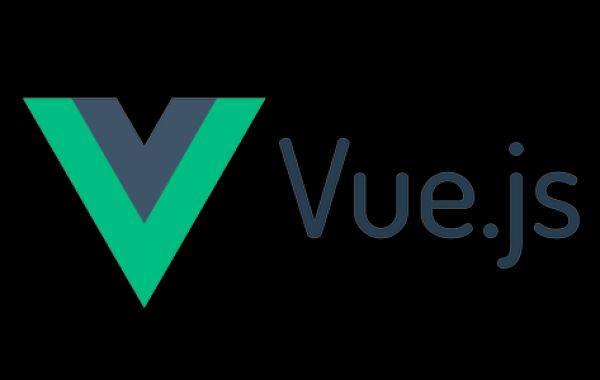If you’re looking for a modern and efficient Frontend framework to power your next project, look no further than Vue.js. Vue.js is an open-source JavaScript framework used to create interactive user interfaces. It is one of the most popular Frontend frameworks, with an ever-growing community of developers. Vue.js offers an excellent combination of performance, ease of use, and scalability.
For any developer looking to create a web application, choosing the best frontend framework can be daunting. With so many options available, it can be difficult to know which one to choose. One framework stands out from the rest: Vue.js. With its easy-to-learn syntax and fast rendering capabilities, Vue.js is quickly becoming the go-to choice for web developers everywhere.
In this blog post, we'll explore why Vue.js is the best frontend framework for your next project.
The small size of the application
Vue.js is known for its lightweight size, making it one of the smallest frontend frameworks available today. This makes it ideal for small to medium-sized applications, as well as larger ones. With a compressed size of only around 21KB, Vue.js provides a great deal of flexibility and scalability for developers. Furthermore, with Vue.js development services, you can easily integrate and customize existing applications and create something completely new. The size and scalability of Vue.js makes it an excellent choice for both startup projects as well as larger projects.
Higher performance
Vue.js is known for its performance, which is one of the main reasons why developers choose it over other frontend frameworks. It takes advantage of modern web technologies such as HTML5, CSS3, and JavaScript to deliver high-performance user experiences that are both reactive and intuitive. Vue.js applications are lightweight and fast, thanks to a unique virtual DOM implementation that ensures only changed components are re-rendered. It also supports code splitting, which allows developers to split up code into smaller chunks to improve loading times.
Learning Ease
Vue.js is the perfect choice for developers looking for a frontend framework that is easy to learn and use. Unlike other popular frameworks, Vue.js does not require extensive knowledge of HTML, CSS, or JavaScript. This makes it ideal for beginners and those without much coding experience.
Vue.js features a simplified syntax that is familiar to JavaScript users. This makes it easy to pick up, so you can quickly create interactive and engaging web apps. The syntax is also very intuitive, making it even easier to understand.
Very flexible
Vue.js is incredibly flexible and can be used for a variety of different applications. It has been designed with the intention of being easily integrated into existing projects, and its highly customizable nature makes it perfect for complex projects that require a variety of different features. Vue.js is also very lightweight, so it won't slow down your application or cause any performance issues.
Streamlined Integration
Vue.js is well known for its streamlined integration with existing projects. Developers can easily integrate their project with Vue.js without any major overhauls to the existing codebase. This makes it very easy to get up and running with Vue.js and can save developers a lot of time.
Another great thing about Vue.js is that it provides an official CLI tool which can be used to quickly scaffold projects, set up hot-reload server and configure builds. The CLI tool also allows developers to choose from a variety of templates and other configuration options.
Improved Documentation
Vue.js is known for its easy-to-understand documentation and an ever-growing number of resources. The official website provides detailed guides and a very helpful API reference. Additionally, the Vue.js team also maintains an official style guide to help developers write better code.
The Vue.js team also regularly releases new features and updates to the framework. As such, the official documentation is constantly being improved and updated to reflect the changes in the framework. For those who prefer more visual learning, there are plenty of interactive tutorials available on the internet. These tutorials are designed to teach users how to develop applications with Vue.js in a step-by-step manner.
Handy Conventions
Vue.js comes with a set of handy conventions that make it easy to write and maintain code. These conventions help you avoid common pitfalls and improve the overall readability of your code.
First, Vue.js follows the single-file component (SFC) pattern. This means that each component is located within a single file, which makes it easier to organize and maintain your codebase. Additionally, Vue.js components are designed to be reusable, meaning you can use them over again without the need for duplicate coding.
Vue.js also encourages the use of a modular approach. Instead of having one large monolithic application, you can break down your codebase into smaller, more manageable modules. This makes it easier to test and debug your code, as well as easier to deploy in production environments.
Comparison of Vue vs Angular vs React
When it comes to choosing a frontend framework, there are several options out there. But three of the most popular and powerful frameworks on the market today are Vue.js, Angular, and React. Each of these frameworks offers advantages and drawbacks, so when choosing the right one for your next project, it’s important to understand what sets them apart.
Vue.js is a lightweight and easy-to-learn JavaScript framework, perfect for developers looking for an easy starting point into the world of frontend development. It is very flexible and allows for rapid development due to its small size and great documentation.
Angular is a full-fledged framework designed for more complex web applications. It is backed by Google and has been around for much longer than either Vue or React, making it a very mature and stable platform. With the latest release of Angular 9, the framework has seen improved performance, speed, and optimization.
React is another popular JavaScript library with a large number of developers using it. It is backed by Facebook, giving it immense support and making it one of the most popular frameworks on the market. React boasts fast performance and scalability, allowing you to create large, complicated applications easily.
When it comes to comparison of Vue vs Angular vs React, each framework has its strengths and weaknesses that should be taken into account before choosing one. Vue is great for smaller projects or those needing faster time to market, while Angular is better suited to larger applications that need more complex features. React is ideal for web applications that require scalability and high performance.
Conclusion
Vue.js is a powerful frontend framework that offers great advantages over other popular frameworks like React and Angular. Its small size, high performance, ease of learning, flexibility, streamlined integration, improved documentation, and handy conventions make it an ideal choice for any project. Vue also provides developers with the opportunity to choose the most suitable solution for their specific needs. All in all, Vue.js is a solid choice for your next project.








